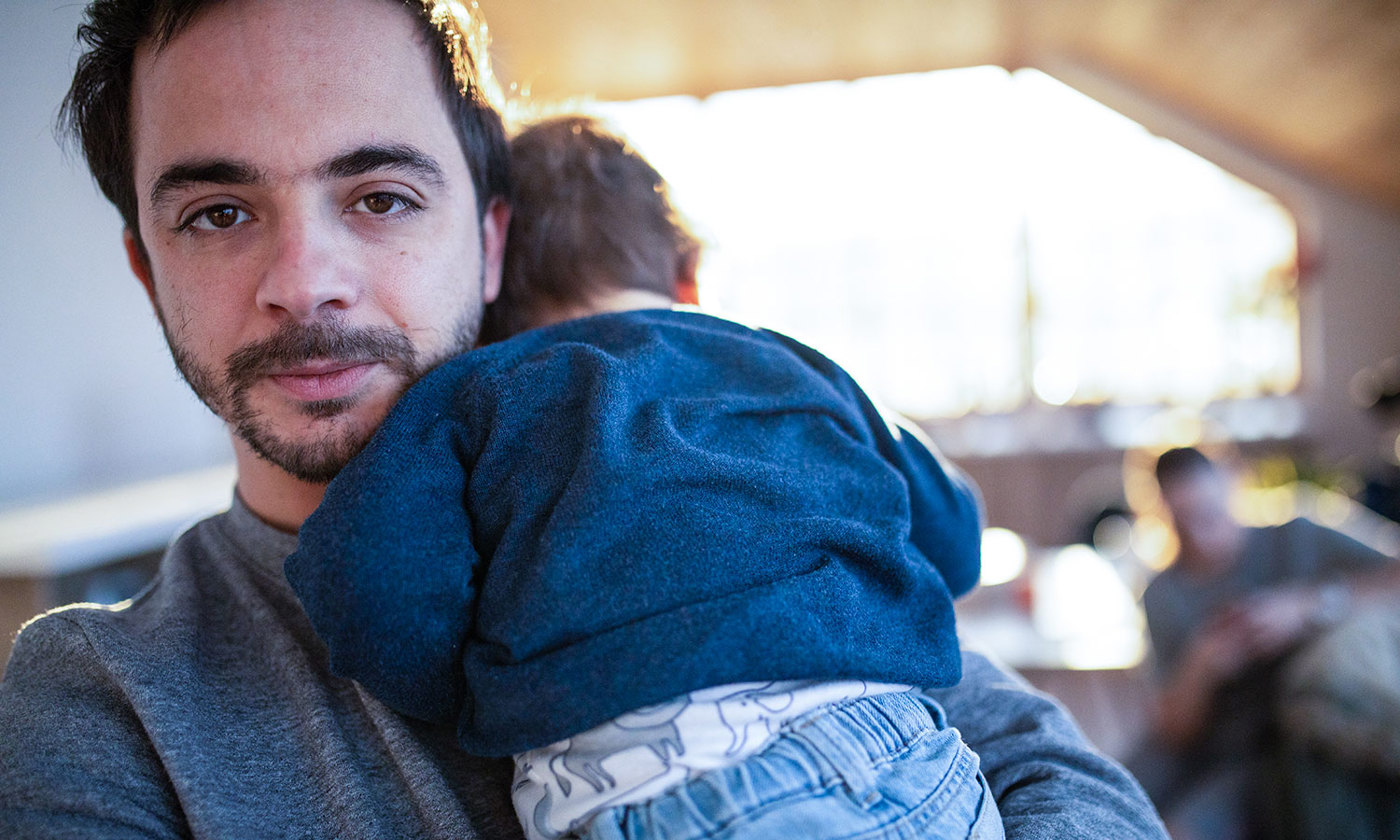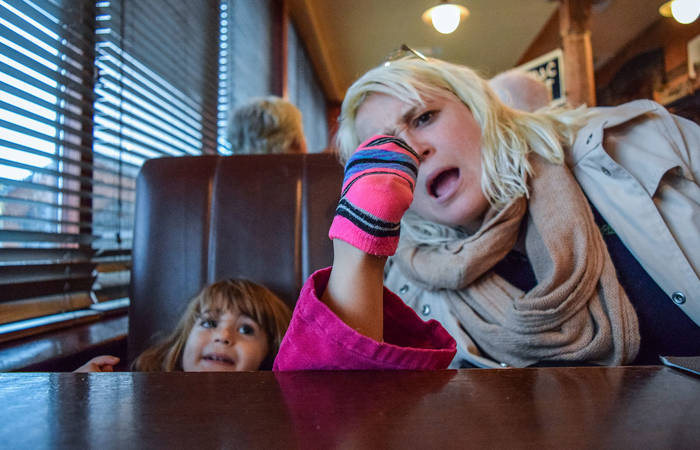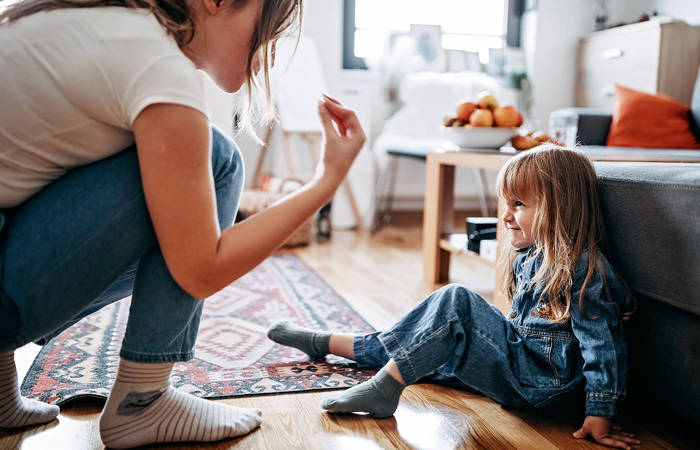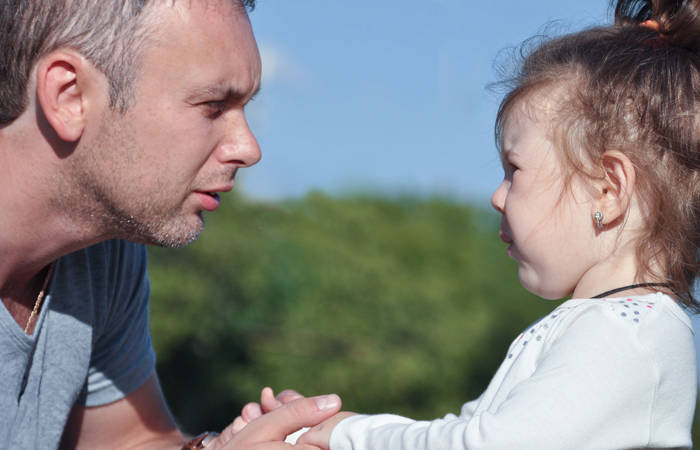Like what you see?
Sign up to receive more free parenting advice.
Thank you for subscribing to our newsletter!
Child Development

Credit: iStock.com/Cicy
Dr Justin Coulson is the co-host of Channel 9’s Parental Guidance, a three-time bestselling author, a TEDx speaker, and one of Australia's most popular parenting experts. In this article he explores five ways to eat humble pie as a parent when you’ve made a mistake.
The only people who really know how to parent perfectly are the people without their own children. Anyone who has raised a child knows that claims of parenting perfection are patently false.
I’m a parenting ‘expert’, with 6 kids, 6 books, and a PhD in psychology. I’m supposed to get it right more than most. But we all make mistakes. This article begins with a confession regarding one of mine.
Some years ago I blew up one morning. One of my young children had ignored requests, been cruel to her sister, and generally made our morning awful. My repeated efforts to coax her into a happier ‘place’ had been rebuffed with an awful attitude. I was running late. I was stressed and tired and trying to do it all on an empty stomach. It was a recipe for disaster. And the disaster happened. Badly.
I finally walked her to the car, put her in her seat, and drove her to early learning. On the way I told her precisely how mad I was. Loudly. Unkindly. In a non-parenting expert kind of way. It was disastrous. She cried. She wailed. And I became madder and madder. Until I realised I had to sign her into her class.
I put on a big pretend smile, waltzed into the centre, signed the paperwork, and gently whispered, “Have a great day kiddo.” And as I left I glanced over my shoulder to see her fighting back tears, standing glued to the spot, pretending that everything was alright when it clearly was not. It was then that a big, horrible thought occurred to me.
“You are a bad dad!”
My conscience began to eat at me. I tried to get through my work. It was ineffective. I tried to justify my behaviour.
“If she hadn’t been such a brat…”, but I knew that was victim-blaming. Besides, she was a preschooler and she had behaved like one. I was an adult, but I knew I had not behaved like one of those! I knew I had made a BIG parenting mistake. And I knew what I had to do that afternoon.
Parents should apologise
As much as it feels like it, our children do not wake up in the morning and think to themselves, “Today is the day that I am going to make my parents’ life hell!” It’s just that some days are harder than others. It’s the same for us, but we tend to be more forgiving of ourselves than our children. Perhaps it’s because we know why we’re struggling, but they don’t always know how to tell us why they’re struggling.
As a result of the challenges, baggage, and stress that we are under (which sometimes relates to our children and sometimes does not), we make parenting mistakes. We speak harshly. We respond punishingly. We hurt hearts.
When this happens we need to make things right. Some parents believe they should not have to apologise to their children. I disagree.
Learning to say "sorry"
When our children make mistakes, especially in relationships, we usually make some specific demands of them. Even though they’re only learning, we encourage them to make it right. Pause for just a moment and consider what we typically expect from them so they can show that they’ve “made it right”.
Usually that means saying sorry. Often it means fixing something broken. And it almost always requires a promise to never do that again.
Well, the same thing applies to us. Humble pie doesn’t taste so great, but it’s extraordinarily good for our souls, and for our relationships with our little ones.
Mistakes happen. And when they do we have a choice. We can bury ourselves in stubborn pride and blame our children for our poor behaviour. That’s victim-blaming. We don’t accept it in society at large. We can’t accept it or model it in our homes. Or we can turn towards our child, apologise, and commit to improvement.Dr Justin Coulson
Stay up to date with the latest news and articles from First Five Years
Thank you for subscribing to our newsletter!
How to eat humble pie, in 5 easy steps
If we’re going to make amends, the following 5 steps can be a helpful guide.
1. Recognise
Perhaps it’s stating the obvious, but we must recognise our mistakes. Sometimes we pretend it didn’t happen, or we blame our child. This isn’t going to help anyone learn or grow. And it’s not going to repair a relationship. We have to recognise the hurt we’ve caused.
2. Remorse
Our second step is to actually feel bad about it. This guilt is not a bad thing. It’s a crucial part of moving forward with improvement. Guilt feels gross. It’s because it creates what is called ‘cognitive dissonance’ - a feeling that we’re not living up to our values. And it creates a desire to repair ruptures and improve ourselves. A failure to feel remorse means we’re failing to have empathy, recognise our mistakes, and grow ourselves and our relationships.
3. Express Regret
When we know we’ve done something lousy, we need to say sorry. This is what we expect of our children, and we should expect no less of ourselves. The best apologies have four parts:
- I’m sorry
- I did this…
- It made you feel…
- Will you forgive me
The best apologies follow a formula where we express regret, explain what our actions were and how they affected the other person, and actually ask forgiveness. Failure to complete step four means we often say sorry and the other person says, “that’s ok.” But here’s the thing.
It’s NOT ok! And when we say “I’m sorry” and leave it there, the automatic response is “that’s ok” when it’s not! This is why the expression of forgiveness is so important. It doesn’t excuse the poor behaviour with a glib, “that’s alright”. It forgives the poor behaviour with an intentional commitment to make things right.
4. Make restitution and repairs
This is the part where we repair the ruptured relationship by actually righting the wrong. It’s where pictures and paintings are pulled out of the bin and put back on the fridge, or hugs and kisses are shared to make it all better. Some things can’t be repaired, replaced, or reconstituted, but relationships with our children always can be.
5. Refrain
If we’re really trying to make up for a parenting mistake we have a responsibility to do all that lies within our power to refrain from making that mistake again. Will we succeed? Usually not. But we do our best, and we communicate that to our child.
Avoid victim-blaming and own the mistake
Mistakes happen. And when they do we have a choice:
- We can bury ourselves in stubborn pride and blame our children for our poor behaviour. That’s victim-blaming. We don’t accept it in society at large. We can’t accept it or model it in our homes. Or;
- We can turn towards our child, apologise, and commit to improvement.
Our children love us - just like we love them. And they’re always willing to give us another shot. Saying sorry is a way that we get our hearts right, and help them know that we love them. No. Matter. What.







